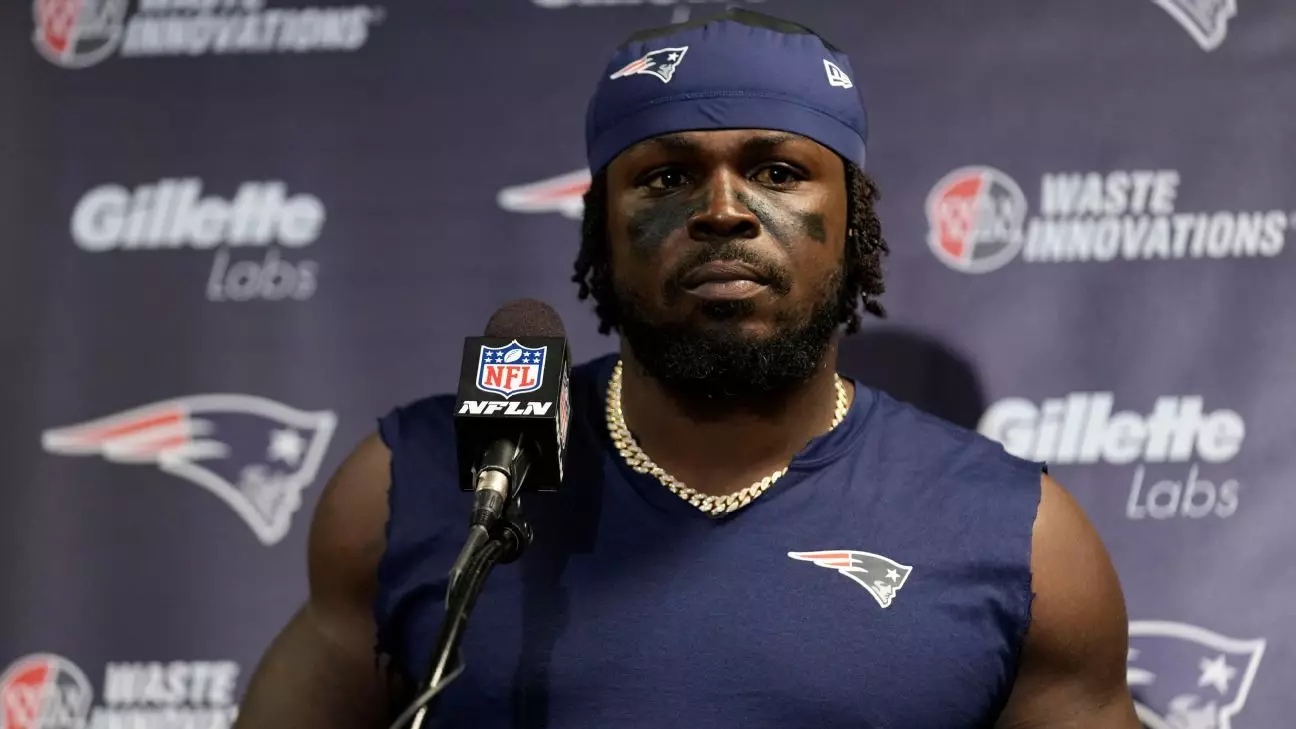The NFL has always been a league closely scrutinized not only for the athletic prowess of its players but also for their conduct off the field. The recent case involving New England Patriots safety Jabrill Peppers exemplifies the complexities athletes face when legal issues and allegations of misconduct intersect with their careers. As Peppers’ situation unfolds, it raises pressing questions about accountability, the power dynamics within domestic relationships, and the implications for the league.
In early October, Peppers was embroiled in a serious legal matter after being charged with multiple offenses, including assault, strangulation, and drug possession. The details are alarming: allegations arose from an incident involving a woman who reportedly suffered physical harm during an altercation. Alongside these serious claims, Peppers faced an additional complication as he attempted to navigate legal proceedings while maintaining his position on the Patriots roster.
The NFL responded to the situation by placing Peppers on the commissioner exempt list, a temporary measure that prohibited him from participating in team activities while an investigation was initiated. This set a tone of caution and accountability from the league, indicative of its Personal Conduct Policy. The ongoing investigation serves to underline the gravity of domestic violence claims and reflects how even elite athletes are not immune to the consequences of their actions.
The league’s decision to remove Peppers from the commissioner exempt list does not imply a resolution to the allegations he faces. In fact, it underscores the duality of his position as both a player under investigation and a member of a renowned sports franchise. The Patriots organization issued a statement acknowledging that the NFL’s inquiry is ongoing and that they would refrain from further comments until both the legal process and league investigation conclude, demonstrating prudent navigation through a tricky terrain of media scrutiny.
As Peppers readies himself to return to team activities, the dialogue surrounding his situation intensifies. The roster spot he occupies is not merely a reflection of his athletic capabilities but embroils him in a narrative of redemption and accountability. His return to training and participation in games does not erase the allegations; rather, it amplifies the public’s focus on whether he can overcome the stigma attached to these accusations.
The allegations against Peppers pose deeper questions about the dynamics of power in relationships. Reports reveal that he and the involved woman had an on-and-off relationship for about three years, which adds layers to understanding the context of the incident. As narratives develop, the legal representations from both sides indicate complexities that go beyond simple characterizations of guilt or innocence.
Peppers’ attorney claims to possess video evidence contradicting the allegations, suggesting that the narrative surrounding the incident is not as straightforward as it might appear. Such conflicts can often stem from miscommunications or unexpected escalations in volatile situations, where emotions run high. It is imperative that in examining allegations of domestic violence, one maintains a stance that seeks truth while also considering the nuanced realities of personal relationships.
Meanwhile, the plaintiff’s legal team denies instigating a demand that could be interpreted as extortionary. This speaks to a critical aspect of handling allegations: the need for transparency and legitimacy in the claims made by both parties. The accusations, counterclaims, and proposed settlements highlight the tumultuous nature of legal battles, and ultimately, the search for justice may hinge on the outcomes of courtroom proceedings.
In light of broader conversations about domestic violence in sports, the NFL has repeatedly sought to position itself as an advocate against such behavior. Patriots’ coach Jerod Mayo reinforced this commitment, emphasizing the organization’s policy against domestic violence, irrespective of the individual involved. His statement aligns with the league’s attempts to foster a culture that prioritizes accountability and responsible behavior from its players.
Whether through mentoring, legal consequences, or community outreach, franchises have the opportunity to redefine their culture and instill values of respect and dignity. The Peppers case serves as both a cautionary tale and an opportunity—a chance for the NFL to demonstrate its ultimate commitment to addressing conduct issues and supporting victims of domestic violence. Ultimately, it’s a moment for introspection, understanding, and the hope for positive change both within the league and in society at large.
As Peppers embarks on this tumultuous journey, the outcome is yet to be determined, and it holds significant implications for his future and the broader landscape of professional sports.


Leave a Reply